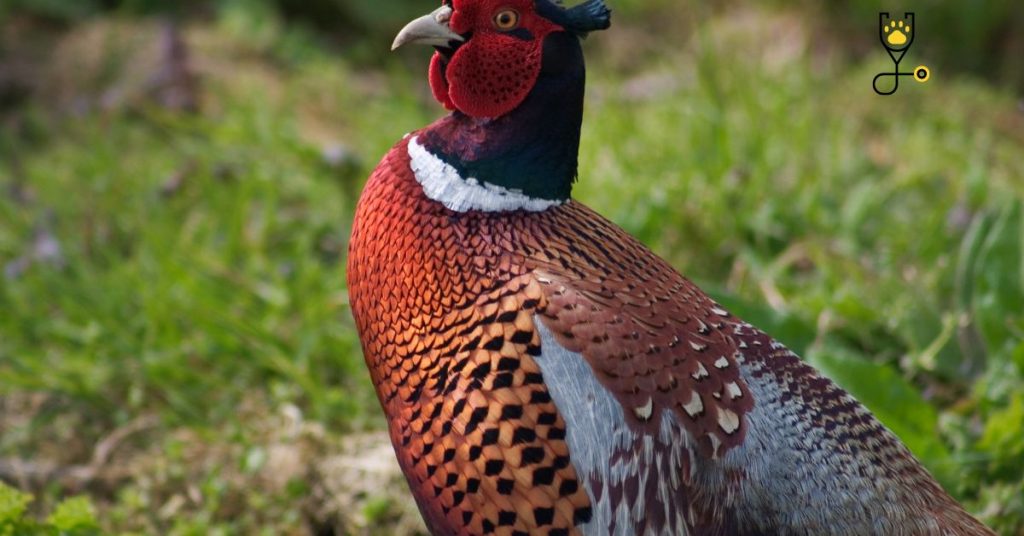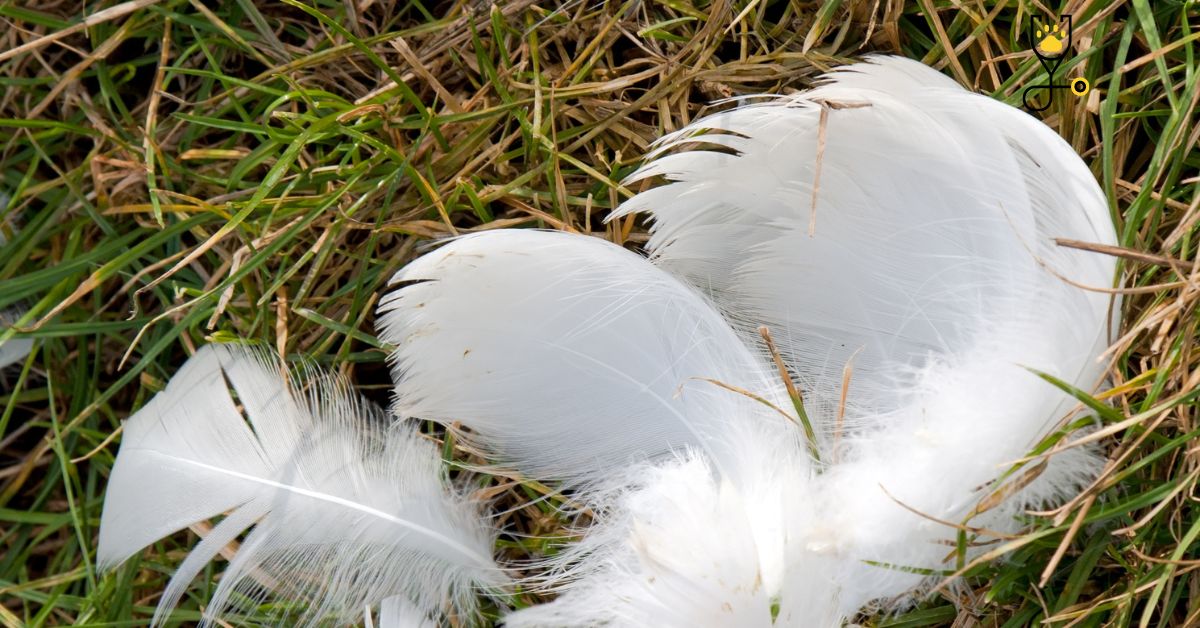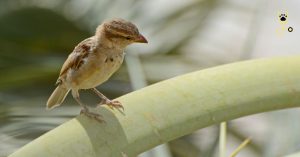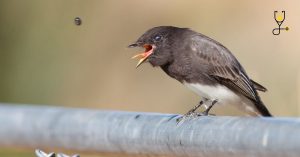Are you a proud bird owner and worried about why your feathered friend is plucking their feathers? You’re not alone! Many owners are at a loss to understand this behavior, but it’s important to recognize the potential causes before seeking help. In this blog post, you’ll find out why birds pluck their feathers, what underlying factors might be causing them distress or discomfort, how to provide comfort and support for your pet in such times of need, and more. Read on for everything you should know about feather-plucking in birds – from identifying the underlying cause to finding effective solutions that will help eliminate the behavior.
Reasons of feather-plucking
1. Stress
Feather-plucking is often a sign that your bird feels stressed or bored in its environment, and not getting enough physical activity can also contribute to the behavior. If you suspect that stress is at play here, it’s important to look for opportunities to make your bird’s environment more enriching and stimulating. This could mean adding new toys or perches to the cage, spending more time interacting with your pet, creating a variety of different visual stimuli in its cage or aviary, or even taking it outside for some fresh air and sunshine.

2. A diet lacking proper nutrients
can also be a culprit for feather-plucking. If your bird appears to be undernourished, talk to your vet about what you should be feeding it and how much of each nutrient it needs in order to be healthy. Providing high-quality food designed specifically for birds can help ensure that your pet gets the nutrients it needs and avoids any deficiencies.
3. Allergies or irritants
Your bird may be plucking its feathers as a result of environmental allergies or irritants like dust, pollen, chemicals, dander or smoke. In such cases, it’s important to remove anything in your pet’s environment that might be causing irritation and take steps to clean or sanitize the area as much as possible.
4. Boredom or loneliness
If you work long hours, have a busy social life, travel frequently, or leave your bird unattended for extended periods of time, it’s possible that feather-plucking is simply your pet’s way of expressing its boredom or loneliness. In such cases, be sure to spend more time with your bird and give it plenty of opportunities for social engagement, either through playtime or interactive toys.
Does your bird scream often? Learn why and how to overcome this behaviour.
5. Genetic predisposition
Some birds are simply more prone to feather-plucking than others due to genetic factors. If this appears to be the case with your bird, you may need to take extra steps to provide comfort and support in times of stress, along with finding ways to enrich and stimulate your pet’s environment as much as possible.

6. Illness or injury
If your bird seems ill or has sustained an injury that is causing it pain or discomfort, it may begin plucking its feathers in an effort to relieve itself of the discomfort or to help cover up any visible signs of injury. In such cases, it is important to bring your pet in for a check-up with your veterinarian so that the cause can be identified and addressed as needed.
7. Stress or anxiety
It may also occur in birds that have been through traumatic experiences like being rescued from abusive or neglectful owners or moving to new homes. If you suspect that this is why your bird is plucking its feathers, take steps to create a more caring and supportive environment and spend time helping it adjust and feel safe in its new home.
8. Mental issues
can also contribute to feather-plucking behavior in birds, particularly if they have been through significant psychological trauma or have other mental health conditions. If you suspect that your bird is dealing with a mental health issue, it’s important to work closely with your vet and an avian behavior specialist to address the underlying cause of the problem and develop strategies for helping your pet feel better.
9. Injury or disease
If your bird is plucking its feathers as a result of a physical injury, illness, or other medical condition, it’s important to work with your veterinarian to identify the underlying cause and come up with a treatment plan to help address the issue and relieve any pain that your pet may be experiencing. Some potential causes could include things like:
10. Environmental stress
If your bird is plucking its feathers as a result of environmental stress, it’s important to work with your veterinarian to identify the cause and address it as needed. Potential causes could include things like:

Cures for feather-plucking birds
1. Providing a nutritionally balanced diet
One of the best ways to prevent feather-plucking in your bird is to ensure that it is fed a healthy, well-balanced diet that provides all of the nutrients it needs for optimal health and well-being. This can include things like fresh fruits and vegetables along with high-quality pellets and seeds formulated specifically for birds. Additionally, be sure to avoid feeding your pet any foods or treats that might contribute to nutritional deficiencies or illnesses, as this could make feather plucking more likely.
2. Limiting stress in your bird’s environment
Feather-plucking can also occur as a result of environmental stressors, such as exposure to loud or sudden noises, other pets in the home, or changes in the bird’s environment. You can help minimize stress in your bird by creating a calm and peaceful living space with lots of attention and social engagement from you, along with minimizing as many potential negative triggers for stress as possible.
3. Addressing mental health issues if necessary.
If you suspect that your bird may be plucking its feathers as a way to express anxiety, frustration, or other mental health issues, it’s important to bring your pet in for an evaluation so that any underlying causes can be identified and addressed as needed. This could include things like behavioral modification therapy or the administration of medications such as anti-anxiety drugs or antidepressants.
4. Seeking veterinary care if necessary.
If you believe that your bird’s feather-plucking behavior may be due to medical issues like injury or illness, it is important to seek out prompt veterinary care as soon as possible. Bringing your pet in for an evaluation will help determine the cause of the issue and allow appropriate treatment measures to be put into place. This may include things like medication, behavioral therapy, or even surgery in some cases.
5. Providing lots of social engagement and enrichment activities for your bird.
Along with feeding your bird a healthy diet and minimizing environmental stressors, you can also help prevent feather-plucking by engaging with your pet on a regular basis and providing it with plenty of opportunities for enrichment and stimulation. This could include spending time playing with your bird, giving it access to toys or other objects that provide mental stimulation, or simply talking to your pet in an upbeat tone of voice and spending time together each day. The more attention and interaction you can give your bird, the better!
6. Seeking help from a bird behavior specialist if necessary.
If you are not able to identify and address the underlying cause of your bird’s feather-plucking behavior, or if it is particularly severe or complicated, it may be in your best interest to seek out help from a professional bird behavior specialist or veterinarian who specializes in treating feather-plucking. These experts can offer additional insight into the situation and provide helpful tips for how you can better manage your pet’s condition moving forward.
Does your bird hang upside down? Learn about causes and how to overcome this behaviour.
Conclusion
Feather-plucking can be a frustrating and even distressing issue for pet birds, but fortunately, there are many effective ways to prevent or treat it. By providing your bird with a nutritionally balanced diet, limiting stressors in its environment, addressing mental health issues if necessary, ensuring that it has plenty of enrichment activities and social engagement, and seeking veterinary care if needed, you can help keep your bird’s feathers looking healthy and beautiful for years to come.
Frequently asked questions
1. What is feather-plucking, and what causes it?
Feather-plucking is a relatively common issue among pet birds, particularly parrots and cockatoos. It occurs when a bird begins pulling out its own feathers for no apparent reason. There can be many different underlying causes of feather-plucking in birds, including nutritional deficiencies or illnesses, environmental stressors like loud noises or changes in the home environment, mental health issues such as anxiety or frustration, and medical conditions like injury or illness.
2. How can I prevent my bird from plucking its feathers?
There are several things you can do to help prevent your bird from plucking its feathers. These include feeding your pet a healthy, nutritionally balanced diet; minimizing stress factors in its environment, such as loud noises or changes in the home; addressing any medical conditions that may be contributing to its feather-plucking behavior; providing lots of social engagement and enrichment activities, like playing with your bird or giving it access to toys or other objects that provide mental stimulation; and seeking veterinary care if necessary.
3. What should I do if my bird starts plucking its feathers?
If you notice that your bird is starting to pull out its feathers, it is important to bring it in for an evaluation right away so that any underlying causes can be identified and addressed. This could include things like behavioral therapy or medication, such as anti-anxiety drugs or antidepressants, to address any mental health issues or help manage stress. It may also be necessary to make changes to your bird’s diet and living environment in order to eliminate potential underlying causes like nutritional deficiencies or exposure to toxins. In severe or complicated cases, seeking help from a professional bird behavior specialist or veterinarian may be necessary.
4. How can I tell if my bird’s feather-plucking is the result of a mental health issue or other underlying cause?
Some signs that your bird’s feather-plucking may be due to a mental health issue or other underlying cause include behavioral changes, such as aggression or increased stress levels, which may manifest as pacing, vocalizing loudly, or self-mutilation; physical symptoms like weight loss, lethargy, or bald patches on its body; and changes in its living environment. If you suspect that there may be an underlying cause for your pet’s feather-plucking behavior, it is important to bring it in for an evaluation with a veterinarian who specializes in treating birds. This will allow them to assess your bird’s condition and determine whether additional testing or treatment is necessary.
5. How can I keep my bird’s feathers looking healthy and beautiful?
To help keep your bird’s feathers looking healthy and beautiful, it is important to provide it with a nutritionally balanced diet, minimize stress factors in its environment, address any medical conditions that may be contributing to its feather-plucking behavior or other behavioral issues, and ensure that it has lots of social engagement and enrichment activities. This could include providing toys for stimulation or engaging with your bird regularly, such as playing games or doing training exercises. You may also want to consider seeking the help of a professional bird behavior specialist or veterinarian if you are having difficulty managing your bird’s feather-plucking behavior on your own.








